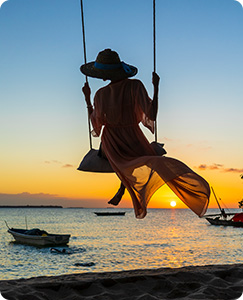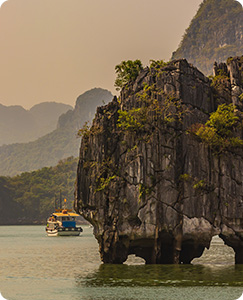Overview
Mongar
Mongar, situated in eastern Bhutan, is a picturesque town that offers travelers a perfect blend of culture, history, and natural beauty. Perched on a ridge, Mongar is known for its scenic landscapes, with terraced fields and rolling hills covered in lush greenery. Despite its elevation, Mongar enjoys a pleasant climate, making it a comfortable destination for visitors throughout the year.
One of the town’s main attractions is the Mongar Dzong, a striking fortress that showcases Bhutanese architecture. Unlike the older dzongs in western Bhutan, Mongar Dzong was constructed in the 20th century, but it follows the same traditional designs without the use of nails or drawings, showcasing the craftsmanship of local artisans. Visitors can explore the dzong’s beautiful courtyards and halls, which are still actively used by the local administrative and monastic bodies.
For those interested in spiritual experiences, Mongar offers access to several sacred sites, including the Drametse Monastery, one of the most important religious centers in eastern Bhutan. It is home to the famous Drametse Ngacham, a sacred mask dance recognized by UNESCO as a part of Bhutan’s intangible cultural heritage.
Mongar is also a gateway for trekking and exploring Bhutan’s eastern countryside, with several trails leading through pristine forests and quaint villages. For travelers looking to experience Bhutan’s natural beauty and cultural heritage without the crowds, Mongar is a serene and authentic destination.
Trashigang
Trashigang, often referred to as the “Jewel of the East,” is the largest town in eastern Bhutan and a hub of activity for the surrounding region. Known for its rich cultural heritage, Trashigang is an essential stop for travelers exploring eastern Bhutan’s landscapes and traditions.
One of the town’s key landmarks is the Trashigang Dzong, perched high above the confluence of the Drangme Chhu and Gamri Chhu rivers. This imposing fortress has stood guard over the region since the 17th century and today serves as the administrative center of the district. The dzong also hosts the annual Trashigang Tshechu, a vibrant festival filled with masked dances, rituals, and celebrations that draw locals and visitors alike.
Trashigang is also an ideal base for exploring some of Bhutan’s most remote and fascinating regions. It is the gateway to the Merak and Sakteng valleys, home to the semi-nomadic Brokpa people, whose unique way of life, customs, and dress are distinct from the rest of Bhutan. Trekking through these high-altitude valleys offers an unforgettable cultural and natural experience, with stunning views of the Himalayas and the chance to observe the Brokpa’s yak-herding lifestyle.
For those interested in spirituality and Buddhism, Trashigang is home to several important monasteries, including Gomphu Kora, where pilgrims from Bhutan and India gather for the annual festival, walking around the sacred site in devotion. Trashigang’s rich history, vibrant culture, and proximity to remote valleys make it an intriguing destination for travelers looking to explore the deeper layers of Bhutanese life.
Trashiyangtse
Located in northeastern Bhutan, Trashiyangtse is a serene district known for its rich cultural heritage and traditional craftsmanship. The town of Trashiyangtse itself is a quiet and peaceful settlement, surrounded by forests and mountains, offering a perfect retreat for those seeking to explore Bhutan’s more remote and tranquil areas.
One of the district’s most famous landmarks is the Chorten Kora, an impressive stupa built in the 18th century. Modeled after the famous Boudhanath Stupa in Nepal, Chorten Kora is a revered pilgrimage site for both Bhutanese and neighboring Arunachal Pradesh communities. The annual Chorten Kora Festival is a vibrant religious celebration where devotees gather to circumambulate the stupa, paying their respects and seeking blessings.
Trashiyangtse is also known for its traditional arts and crafts, particularly woodturning. The Institute of Zorig Chusum in Trashiyangtse is one of the country’s premier centers for learning Bhutan’s 13 traditional arts and crafts, and visitors can see artisans at work, creating intricate woodwork, paintings, and other traditional items.
Nature lovers will appreciate the Bumdeling Wildlife Sanctuary, home to several endangered species, including the black-necked cranes that migrate to the area during the winter months. The sanctuary also offers opportunities for trekking and birdwatching, making it a haven for eco-tourists.
Trashiyangtse is a destination where history, culture, and nature come together, offering visitors a peaceful yet culturally enriching experience in one of Bhutan’s less-visited regions. Whether exploring its spiritual sites or discovering its crafts, Trashiyangtse promises a deep connection with Bhutan’s heritage and natural beauty.
- 5 Days
- Age 15+
- G87P, Birmingham





